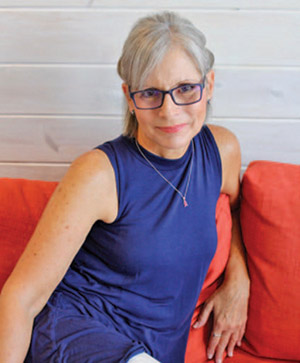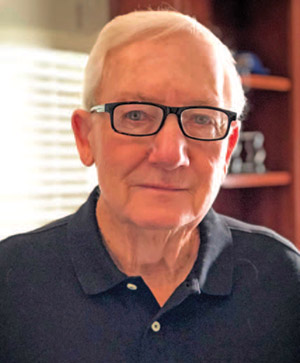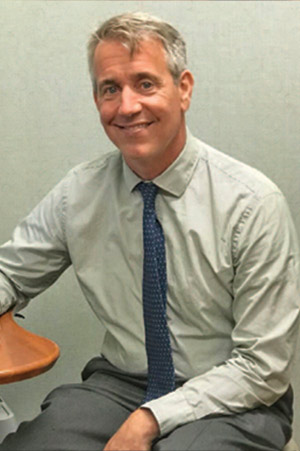It’s a diagnosis nobody wants and a journey that many don’t survive: cancer. This September and October – awareness months for prostate and breast cancer, respectively – people across the country will celebrate the survivors and honor those who lost their battles. According to the American Cancer Society, one in eight women will develop invasive breast cancer in her lifetime, and one in nine men will be diagnosed with prostate cancer in his. The diagnosis, the treatments, the anxiety and the aftermath are life-changing and something most won’t understand unless they, too, have lived it. A silver lining for those who do win the fight is that there is life after cancer; what can be one of the darkest roads in life medically, physically, emotionally or mentally is lighted by those who understand, and they offer helping hands for guidance along the way.
ANDREA GANZ-SEIDERMAN, Breast-Cancer Survivor

“I almost quit – the doctor told me I would lose my hair, but it felt like it was killing me. These doctors, along with Dr. O’Neill, were my cheerleaders – kept me going and really saved my life,” she smiled.
Along with radiation and chemo, Ganz-Seiderman has endured 22 surgeries over three years, including multiple skin grafts due to her body’s adverse reactions to procedures, some which became life-threatening. Dr. Patrick O’Neill of O’Neill Plastic Surgery, she said, is a true lifesaver and was the doctor presiding over each of her surgeries.
She also made friends as she navigated her breast cancer treatments and got involved in Dragon Boat Charleston, a racing club that promotes wellness among cancer survivors. A year after her surgeries, the love of family, her friends, fellow survivors and three adult children are her greatest support system and lifesavers, and her passion for dragon boat racing has taken her to national and international competitions. She continues to paddle four times a week.
“We’re proud for the fight, and we’re not letting it get to us,” she said of herself and her survivor friends. “I know it’s not easy. My husband died of cancer when my daughter was 16 months old. My parents died of cancer, too. I’m still here. There’s a whole lot out there to still live for and still explore and smile about. Just the curiosity of what tomorrow is going to bring is enough to give all you have to hang in there,” she said.
EDWARD SOUTHARD, Prostate Cancer Survivor

Southard had 28 radiation treatments – five days a week and two to rest – combined with pills and shots designed also to combat the cancer. After one month, his treatment was a success, and the cancer was almost undetectable.
“There is, of course, lots of anxiety; when you find out you have prostate cancer, you worry a lot about it just because of the fact that you know you have it,” Southard explained. “The radiation treatments made me nauseated, but only took about five minutes each time once I was on the table. I was so relieved when the results came back that it was successful, and I’m thankful for my doctors’ guidance and involvement throughout.”
A MEDICAL PERSPECTIVE

He stressed the importance of cancer screening because cancer can certainly be deadly, and awareness and early detection can be integral in successful treatment. Around 30,000 lose their lives to prostate cancer each year, according to Harvard Health Publishing, and breast cancer takes about 40,000 lives annually, said the American Cancer Society.
Cancer can come at different stages, different growth rates, different locations and different types – all of which can affect the risks, treatment options, survival rates and more. Prostate cancer, Dr. Savage said, is a slow-growing cancer that, in many cases, depending on the stage and a patient’s general life expectancy, does not require immediate treatment and may never require treatment.
“It’s important to recognize that cancer screening is something that should be done even if you don’t have any symptoms. People always want to know the early warning signs, but that’s not what screening is; it’s looking to identify people at risk before they develop it. People can say they feel fine, but the reality is they could still be at risk,” he continued.
When a screening indicates a concerning result, patients discuss the options for diagnosis and, if necessary, treatment. Treatment options and timelines vary depending on anything from the type or stage of cancer to a person’s age or health. A conversation with a team of doctors can help guide someone to make these decisions.
BUILDING STRENGTH AND MOVING FORWARD
 Surviving cancer of any kind can change a person physically, emotionally and mentally. Though tests show that the cancer is gone, the body itself has changed. Often weaker, scarred from surgeries or scarred from anxiety and fear, some cancer survivors become less involved and retreat from their previous life, but there are healthy ways to connect and find happiness and strength after cancer.
Surviving cancer of any kind can change a person physically, emotionally and mentally. Though tests show that the cancer is gone, the body itself has changed. Often weaker, scarred from surgeries or scarred from anxiety and fear, some cancer survivors become less involved and retreat from their previous life, but there are healthy ways to connect and find happiness and strength after cancer.
The Survivors’ Fit Program at the Hollings Cancer Center is one such option for breast cancer survivors. The 10-week program works with referred breast cancer survivors to instill healthy exercise, nutrition and behavioral changes. They meet twice a week for a health-related meeting topic and a 45-minute workout. Working on building muscle strength, cardiovascular endurance, discussing healthy lifestyle changes, talking about depression, anxiety and the recovery process, eating healthy and the importance of exercise are just a few things the program offers.
“I’ve seen many women here grow bonds and support each other,” stated Kelsey Quillen, a personal trainer with the program. “They realize they’re not going through this process alone – for most people, a cancer diagnosis comes as a shock, and it is a lonely, isolating feeling. These survivors support each other and push each other to gain back their health, self-confidence, their bodies and their lives.”
by Anne Shuler Toole

Leave a Reply